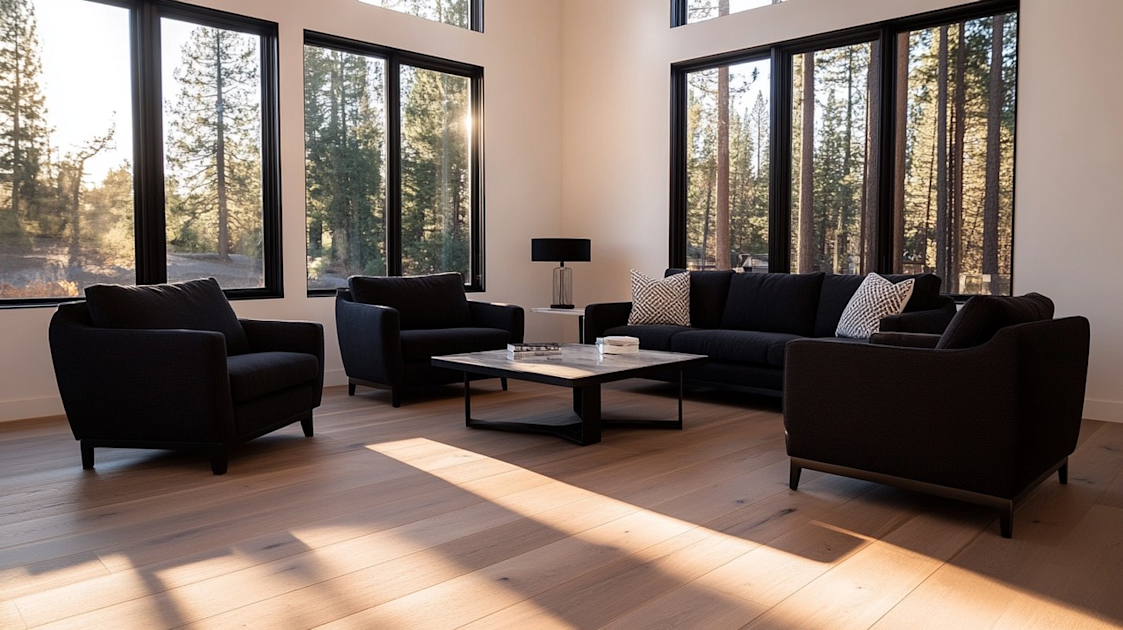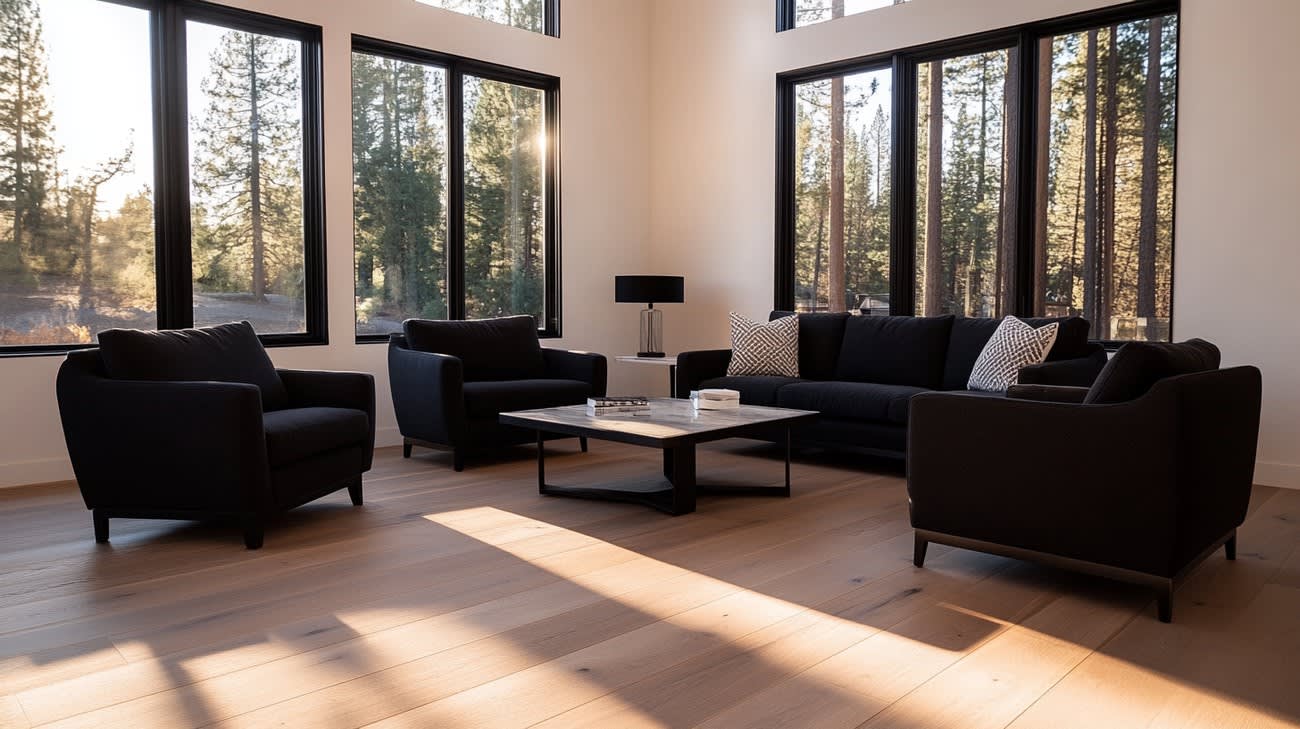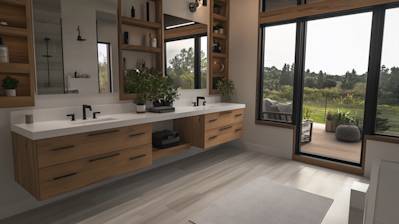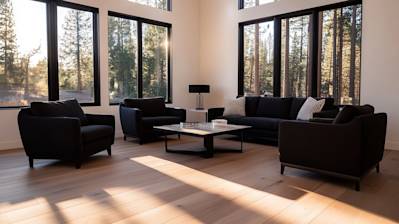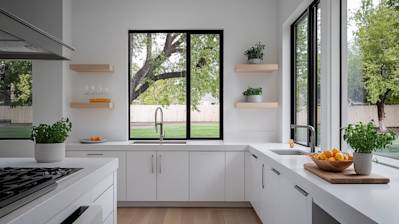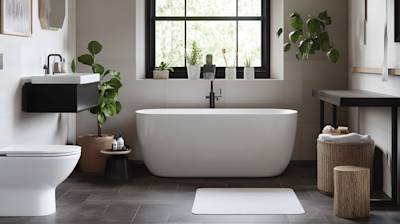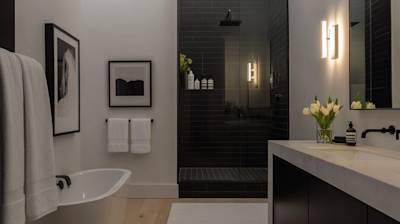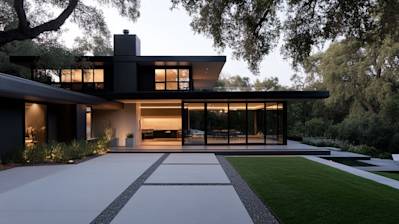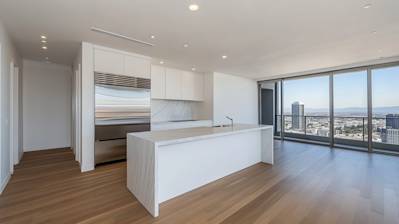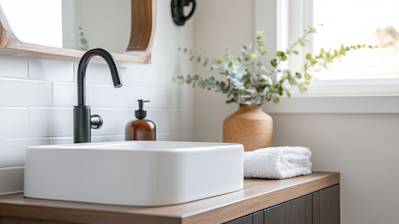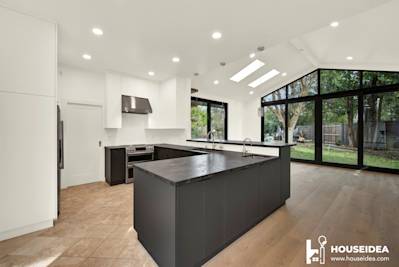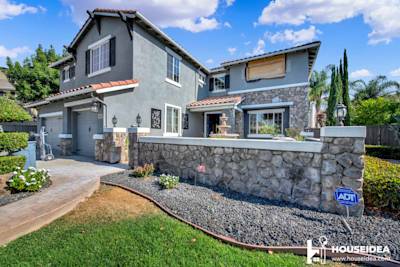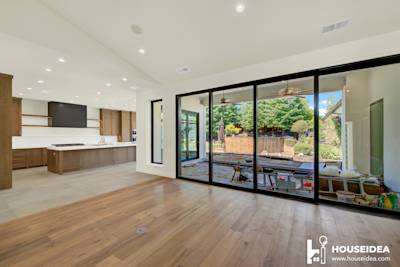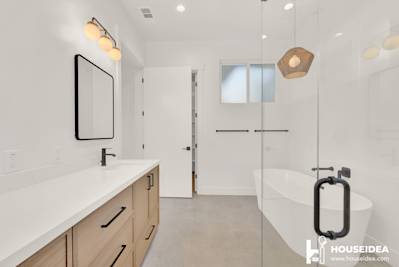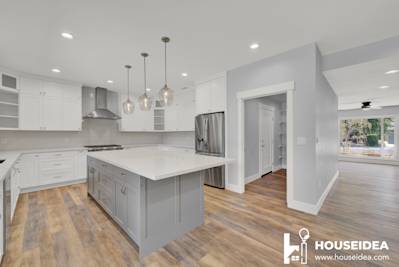If you're planning to remodel or design a new home, you may find yourself deliberating between different types of flooring. Among the myriad options available, hardwood and engineered wood flooring stand out. But which one should you choose? This guide provides a detailed comparison of engineered wood flooring and hardwood to aid in your decision making.
Understanding Hardwood Flooring
Let's begin with understanding the nature of hardwood flooring. Solid hardwood flooring is derived from a single piece of wood, which can be sanded and refinished over time. Produced from a range of species like oak, walnut, or maple, they are known for their enduring quality, timeless aesthetics, and substantial longevity.
Benefits of Hardwood Flooring
Authenticity: Hardwood flooring creates an elegant and sophisticated impression with its natural color and grain variations. These floors can also increase the value of your property due to their high-end appeal.
Durability: When it is maintained properly, hardwood flooring can last for generations. These floors are resistant to damages from impacts due to their hardness.
Refinishing: Hardwood floors can be sanded and refinished several times during their life, allowing you to restore them to their original beauty or change their color to suit your evolving taste.
Limitations of Hardwood Flooring
However, prior to hardwood flooring installation, one should note:
Expense: Hardwood flooring is a premium choice that comes with a high price tag, not just for the material but also for installation.
Maintenance: Hardwood floors are susceptible to scratches from things like pet claws or furniture movements, and require regular cleaning and maintenance.
Not Moisture-friendly: Hardwood is known to warp and discolor due to excessive moisture or humidity.
Understanding Engineered Wood Flooring
On the other hand, engineered wood flooring is a contemporary alternative composed of several layers. Its surface layer is real wood veneer, while the core contains a mix of wood fibers, particles, and adhesives.
Benefits of Engineered Wood Flooring
Variety and Versatility: Since the top layer of engineered wood is real wood, these floors offer the same rich, aesthetic appeal as hardwood. However, it is available in a wider variety of finishes, plank widths, and installation techniques.
Steadfast Under Changing Conditions: Engineered wood flooring is less susceptible to expanding or contracting due to changes in humidity or temperature, making it a top contender for rooms with fluctuating conditions like kitchens or basements.
Ease of Installation: The variety of installation means for engineered wood flooring, including floating, gluing, or stapling, makes it easier to install than solid hardwood.
Understanding the Limitations of Engineered Wood Flooring
On the downside,
Refinishing: The thin veneer layer on engineered wood floors limits the number of times they can be refinished. The cheaper varieties cannot be refinished at all.
Durability: Engineered wood flooring may not be as hard as solid hardwood and can potentially dent more easily.
Engineered Wood Flooring vs. Hardwood - Factors to Consider
When choosing between engineered wood and hardwood flooring, consider the following factors:
Price: While both types of flooring have a similar price range for initial investment, hardwood could end up costing more due to its installation requirements.
Longevity and Durability: Both types of flooring can last for decades, but hardwood has the upper hand due to its ability to be refinished multiple times.
Installation: Engineered wood flooring offers more installation options, making it more versatile.
Moisture Resistance: If you're flooring a space that is prone to moisture or humidity changes, engineered wood could be a better choice due to its better resilience in these conditions.
Aesthetics: In terms of looks, it's a draw. Both engineered wood and hardwood flooring offer gorgeous, luxurious, and timeless aesthetics.
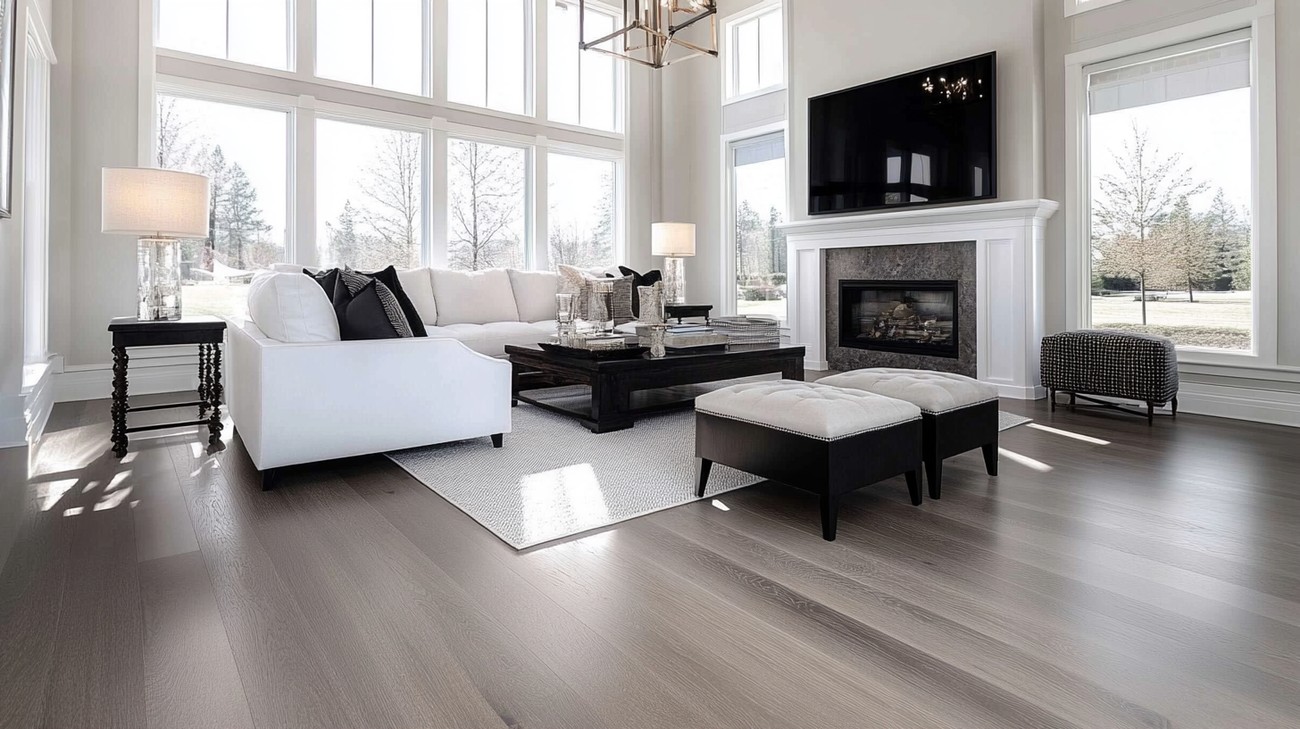
Frequently Asked Questions about Engineered Wood Flooring Vs Hardwood
How do engineered wood and hardwood flooring compare in terms of cost?
Generally, engineered wood flooring tends to be cheaper than hardwood flooring. This is primarily because less of the expensive wood species is used in the creation of engineered wood, thereby reducing its cost. However, the exact price comparison can vary greatly depending on the specific type and quality of the wood species used, as well as the thickness and hardness of the flooring.
Which is more durable: engineered wood or hardwood flooring?
Engineered wood can offer greater resistance to warping and shrinking due to its layered design, making it a more durable choice for areas with fluctuations in temperature and humidity. However, hardwood flooring has a thicker wear layer, which means it can be sanded and refinished more times than engineered wood, potentially giving it a longer lifespan with proper maintenance.
Is engineered wood flooring easier to install than hardwood?
Yes, engineered wood flooring is generally easier and quicker to install than hardwood flooring. This is due to the fact that engineered wood often comes with a click-and-lock or tongue-and-groove system that doesn't require nails or glue. Meanwhile, hardwood flooring installation typically involves more labor-intensive methods like nailing or stapling.
Can I install engineered wood or hardwood flooring over radiant heating?
Engineered wood flooring is a good choice for installation over radiant heating systems, thanks to its multi-layer construction that provides excellent heat transfer and resistance to the drying effect of heat. Hardwood, due to its susceptibility to changes in temperature, may not be suitable for this type of installation.
Is engineered wood or hardwood flooring more environmentally friendly?
Both engineered wood and hardwood flooring have their own environmental benefits. Engineered wood flooring uses less of the premium trees due to its composite construction, which can make it a more sustainable choice. Hardwood flooring, however, comes from a renewable resource and is biodegradable, and with proper forest management, hardwoods can be a very sustainable choice as well.
Can you refinish engineered wood and hardwood flooring?
Yes, both engineered wood and hardwood flooring can be refinished. However, because the real wood layer of engineered flooring is thinner, it can typically only be refinished a few times, compared to solid hardwood flooring which can often be refinished multiple times throughout its lifespan.
Which one is better for pets: engineered wood flooring or hardwood flooring?
Given that engineered wood flooring is more resistant to moisture and can better withstand the wear and tear of pets, it might be a better option for homeowners with pets. However, pets might also scratch the surface of engineered wood more easily than hardwood, so proper pet care and maintenance are important no matter which type of flooring you choose.

Engineered Wood Flooring
Pros
Variety and Design
Engineered wood flooring offers a great range of options for designers and homeowners. With a vast variety of species, stains, finishes and unique characteristics such as knots and grain variations, it offers more design flexibility. Moreover, it's available in several widths, with thin strips, wide planks, parquet squares, and even geometric shapes allowing for all sorts of design creativity.
Durability and Stability
Engineered wood flooring is composed of multiple layers of plywood and composite, with a top layer of hardwood. This multi-ply construction offers a high level of stability and durability compared to traditional hardwood. The layered structure reduces the possibility of the floor warping or bowing, making it suitable for use in areas with fluctuating humidity levels.
Resistance to Moisture
Engineered wood's layered composition also helps in giving it superior moisture resistance compared to ordinary hardwood floors. It's therefore an appropriate choice for rooms where water exposure is a concern, like kitchens, basements or bathrooms or in regions with high humidity.
Installation Ease
Engineered wood flooring is also desirable in terms of its ease of installation. Several installation options are available including nail-down, glue-down and float (where the floor is not attached to the subfloor). Some engineered woods come with click-lock designs that snap together with no special tools or adhesives, making DIY installations feasible for the confident homeowner.
Cons
Lifespan and Refinishing Limitations
The primary downside of engineered wood flooring is that it doesn’t have as long a lifespan as hardwood as it can only be sanded and refinished a limited number of times. This is due to the thin layer of natural wood on top, which can get worn down over time and through refinishing.
Cost
While engineered wood flooring could appear as a cost-effective alternative to hardwood, high-quality engineered wood floors can be quite expensive. Moreover, the need for replacement might come sooner than for solid hardwood, which could increase the overall cost in the long run.
Environmental Concerns
Engineered wood flooring may have some environmental concerns as well. The composite layers can emit volatile organic compounds (VOCs), especially if the wood is treated with certain kinds of chemical finishes.
Hardwood Flooring
Pros
Durability and Longevity
One of the most significant advantages of hardwood flooring is its lifespan. Solid hardwood floors can last up to a hundred years or more with proper care and maintenance, far outstripping engineered wood. As hardwood can be sanded and refinished many times over its life, it also provides greater scope for refreshing and changing the look of the floor.
Value and Appeal
Hardwood flooring offers a timeless, classic aesthetic that holds its appeal over the years and is extremely popular among house buyers. It can add to the value of a home, and as it ages, it tends to acquire a sought-after patina that adds character and richness to any room.
Eco-friendliness
Hardwood flooring is more eco-friendly than engineered wood flooring, especially if sourced from sustainable, managed forests. It's a natural material that doesn’t release VOCs or other harmful substances.
Cons
Cost
One of the main disadvantages of hardwood flooring is its cost. The flooring material and installation can be pricey, particularly for high-end species. However, its durability and longevity can offset some of this initial cost over time.
Sensitivity to Moisture
Hardwood is prone to warping and swelling due to moisture and humidity. Thus, it's less suited for rooms such as kitchens, bathrooms and basements, and for houses in regions with high humidity.
Maintenance
Maintaining the beauty of a hardwood floor often demands more effort. They require regular sweeping or vacuuming to avoid scratches, and the use of specific cleaning products. Plus, unlike engineered wood flooring, hardwood needs refinishing every few years, which can be a somewhat disruptive process.

Myths and Misconceptions About Engineered Wood Flooring vs Hardwood
Myth 1: Engineered Wood is Not Real Wood
One of the most common misconceptions about engineered wood flooring is that it isn't "real" wood. However, this is not true. Engineered wood flooring is made up of several layers. The top layer is a thin veneer of true hardwood, and the layers beneath are composed of high-quality plywood. So, engineered wood flooring isn't fake wood- it's a composite of real wood and other materials designed for increased durability and stability.
Myth 2: Hardwood Floors Last Longer Than Engineered Wood Floors
Many people believe that traditional hardwood floors are more durable and longer-lasting than engineered wood flooring. This is not always the case. The lifespan of engineered wood or hardwood flooring depends largely on how well it's cared for and the quality of the material used. A high-quality engineered wood floor built with a thick top layer can last just as long as hardwood and can be sanded and refinished when necessary, just like traditional hardwood.
Myth 3: Engineered Wood Floors Cannot Be Refinished
Another common misconception is that once an engineered wood floor is scratched or damaged, it cannot be refinished. The truth is that many engineered wood floors can indeed be refinished, but it largely depends on the thickness of the top veneer. If the layer of hardwood on top is thick enough, the floor can be sanded and refinished multiple times. However, cheaper engineered wood with a very thin veneer layer may not be able to be refinished.
Myth 4: Hardwood Floors Add More Value to a Home Than Engineered Wood Floors
While many homebuyers appreciate the appeal of solid hardwood, most cannot tell the difference between hardwood and good-quality engineered wood flooring. Therefore, a high-quality engineered wood floor can have just as much potential to add value to your home as a hardwood floor.
Myth 5: Engineered Wood Flooring is Always Cheaper Than Hardwood
While engineered wood flooring can be less expensive than hardwood, this is not always the case. The cost of both types of flooring can vary based on a range of factors, including the type of wood, the quality of the materials, the brand, and the installation costs. Pre-finished engineered wood can sometimes be more expensive than unfinished hardwood, which needs to be sanded and finished after installation.
Myth 6: Engineered Wood Floors are Less Attractive Than Hardwood Floors
Again, this depends more on the quality of the product than the type. A high-quality engineered wood floor can look just as beautiful as a hardwood floor. Therefore, when it comes to aesthetics, the key lies in quality, not the material.
Myth 7: Hardwood Floors Are More Eco-Friendly Than Engineered Wood Floors
The environmental impact actually varies between different types of hardwood and engineered wood floors. Reclaimed hardwood floors or those certified by the Forest Stewardship Council (FSC) can be more eco-friendly than engineered floors. However, engineered wood floors use less hardwood than solid hardwood floors, making them a more resource-efficient choice. It's important to do your research and consider factors such as sourcing, manufacturing process, and your floor's end-of-life disposal when evaluating environmental impact.
Myth 8: Only Hardwood Floors Can be Customized
While hardwood floors offer the option for customization, engineered floors offer a multitude of aesthetic options as well. From selecting the species of wood for the top layer veneer to choosing custom stains and finishes, engineered wood floors provide many opportunities for customization.
All in all, while there are many myths surrounding engineered wood and hardwood flooring, both can be an excellent choice for your home. It all comes down to your specific requirements and personal preferences, including factors such as budget, lifestyle, and aesthetic preferences.
Summary
So, what's the final shout in the engineered wood flooring vs hardwood debate? Both have their own strengths and weaknesses, like superheroes, each with their unique superpower and kryptonite. Engineered wood flooring boasts higher moisture resistance, stability, and is more budget-friendly. Yet, it doesn't have that solid hardwood's upper hand - the ability to be refinished multiple times over its lifetime.
Now, where do you stand on the engineered wood flooring vs hardwood the face-off? Your choice can depend on many factors. Like what? Let’s look at a few - location, anticipated wear and tear, the atmosphere of the room, budget, and of course, aesthetics. If you're planning for a high moisture space like a basement, engineered wood flooring might save the day. Enjoy the rustic charm of hardwood? And desire a longer life span for your flooring? Hardwood flooring might be singing your song then.
Whichever team you root for in the faceoff of engineered wood flooring vs hardwood, it's important to understand that they both have the potential to add warmth and value to your home. After all, they both belong to the wood flooring league, respected for its timeless appeal. So, consider your specific needs, seek professional advice, and then, happy wood flooring shopping!
About HouseIdea
At HouseIdea, we're a tight-knit crew based out of sunny Sacramento, CA, that eat, sleep, and breathe everything home improvement. Born out of a passion for transforming homes into personalized sanctuaries, we've been serving our community since 2015. We're chameleons adapting to every homeowner's unique needs and style and diving headfirst into projects that range from small bathroom refreshes to large scale remodels. Get ready to turn your house into the home of your dreams with HouseIdea!
Tags: Engineered wood flooring, hardwood, comparison,

